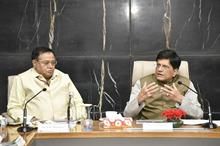
India's export performance in technical textiles has been varied between April 2022 and January 2023. Meditech exports surged by 59 per cent, while geotech textile exports dropped by 44 per cent during this period.
Dr. Arindam Basu, director general of Ghaziabad-based North India Technical Textile Research Association, told Fibre2Fashion, " Indian companies are performing well in many sectors. They have successfully replaced imported technical textile items. Such substitution of imported products not only helped the country to save foreign exchange but also paved the way for exports." He indicated that Indian manufacturers have substituted over 95 per cent of imported protective textile products, with several companies in discussions with the Indian Army for product approvals such as extreme cold weather clothing and NBC suits.
However, Dr. Basu also noted that Indian companies have not yet achieved the desired level of consumer trust in certain technical textile products, specifically medical and automotive textile products. As a result, the country is more reliant on imports for these products. He remains optimistic that Indian companies will soon reach the requisite trust level. It is important to note that in the technical textiles sector, the ability to perform under extreme conditions is the key to success. Consumers hold the expectation that these products should not fail under any circumstances.
The ministry of textiles and the Indian Technical Textiles Association (ITTA) data show that India's exports of meditech increased by 59 per cent to ₹2,251 crore during April 2022-January 2023, compared to ₹1,419 crore in the same period the previous year. Packtech was the largest export sub-segment, with a value of ₹6,452 crore, although this represents a 6 per cent decrease from ₹6,862 crore during the same period last year.
In the first ten months of the fiscal 2022-23, India's total exports of technical textiles were valued at ₹18,872 crore, a one per cent increase from the ₹18,695 crore during the same period in 2021-22. The export performance by sub-segment was aggrotech at ₹694 crore (19 per cent), buildtech at ₹751 crore (4 per cent), clothtech at ₹253 crore (-7 per cent), Geotech at ₹1,160 crore (-44 per cent), hometech at ₹196 crore (-8 per cent), indutech at ₹2,795 crore (9 per cent), mobiletech at ₹1,677 crore (20 per cent), protech at ₹632 crore (50 per cent), sportech at ₹920 crore (18 per cent), and nonwovens at ₹1,091 crore (-23 per cent).
Fibre2Fashion News Desk (KUL)

